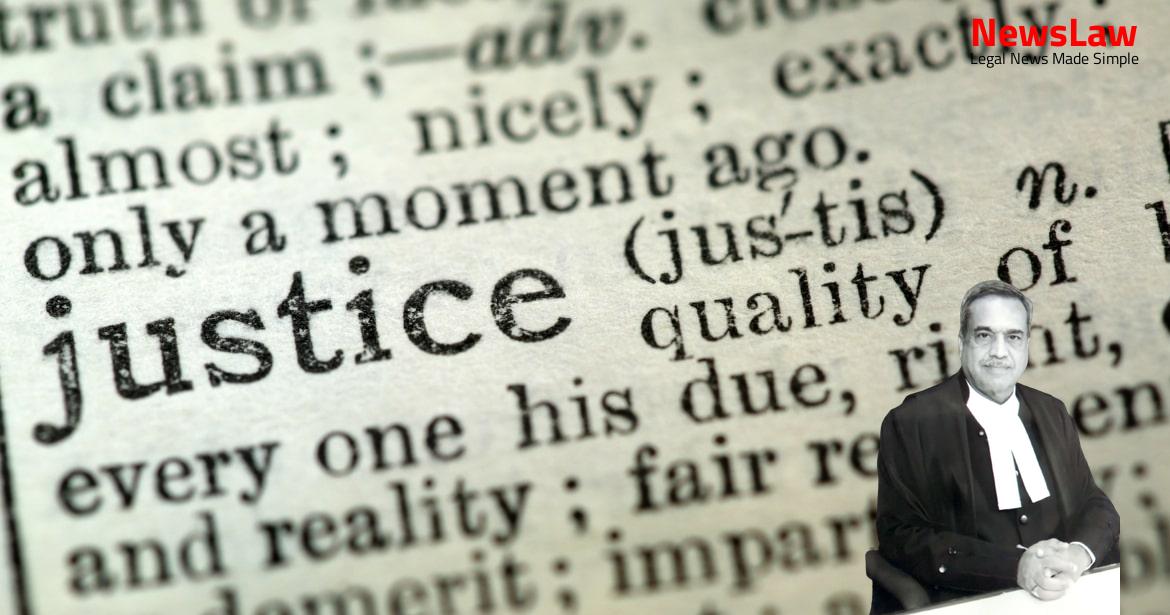Delve into the intricate world of constitutional law through the lens of a recent legal case analyzing the conflict between State and Central laws governing the real estate sector. The court’s detailed legal analysis sheds light on the intricacies of repugnancy between statutes, examining the interaction between laws passed at different levels of governance. Discover the nuances of statutory interpretation and the implications for regulatory frameworks in the real estate industry.
Facts
- The Real Estate (Regulation and Development) Bill, 2013 was referred to a twenty-one member Select Committee in May 2015.
- The Select Committee held seventeen sittings, with 445 stakeholders representing various groups appearing before it.
- The Committee visited different parts of the country to interact with stakeholders and gather diverse views.
- The Committee observed the need to balance consumer protection with encouraging investment in the real estate sector.
- West Bengal enacted rules under WB-HIRA in June 2018, receiving the Governor’s assent in October 2017.
- The RERA Bill 2016 was introduced, repealing Maharashtra Act and the Kerala Act.
- Draft rules under RERA in West Bengal were framed in August 2016 but faced no further progress.
- The Select Committee’s report emphasized the need for growth in the real estate sector while protecting consumer interests.
- The motion for passing the WB-HIRA Bill was adopted in the State Legislative Assembly in August 2017.
- The Standing Committee on Urban Development submitted a report on the RERA Bill 2013.
- WB-HIRA provisions were enforced through a notification dated March 29, 2018.
- The Committee sought to stand by the good consumer and the good promoter
- Legislative balance was struck between the interests of consumers and promoters
- The Select Committee’s report was followed
Also Read: Electoral Malpractices in Mayor Election
Issue
- Both WB-HIRA and RERA fall under Entries 6 and 7 of the Concurrent List in the Constitution.
- WB-HIRA lacks Presidential assent under Article 254(2).
- The State law contradicts or closely mirrors provisions in the Central enactment.
- State Legislature cannot create parallel legislation to that of Parliament in the Concurrent List.
Also Read: Balancing Power and Transparency: Electoral Bonds Struck Down, Disclosure Mandated
Arguments
- The petitioners, represented by Mr. Devashish Bharuka, argued that the subject of both the central and state enactments is covered by Entries 6 and 7 of the Concurrent List in the Seventh Schedule to the Constitution.
- RERA is considered a comprehensive and exhaustive code that regulates the contractual relationship between builders/promoters and buyers/consumers in the real estate sector and provides remedial measures.
Also Read: Recall of Resolution Plan Approval: Legal Analysis
Analysis
- The State law and the Central law provide for remedial measures to enforce compliance with contractual rights and corresponding obligations.
- The presence of a provision in the RDDB Act and the RERA Act indicating that the Acts are meant to be in addition and not in derogation of other statutes led to the deviation from the principle of later Acts prevailing over earlier ones.
- The High Court held that the Orissa Act became inoperative upon the enactment of the Central Act due to an implied repeal.
- In cases of conflicting statutes, the context and scheme of the laws determine the nature and ambit of the expression ‘any other law for the time being in force.’
- The Court analyzed various precedents to determine repugnancy between State and Central laws, considering factors such as consistency, legislative competence, and overlapping jurisdictions.
- The decision in Tika Ramji case explained the concept of repugnancy arising from Parliament and State legislatures operating in the same field.
- The Court held that RERA and the IBC coexist, and in case of a clash, RERA must yield to the IBC due to its exhaustive nature in regulating contractual relationships in the real estate sector.
- The expression ‘is in addition to and not in derogation of any other law’ signifies that the provisions of a particular law are supplementary and not meant to invalidate existing laws.
- The Court examined the necessity of Presidential assent for State laws under Article 254(2) and its implications on repugnancy with Central laws.
- Comparison of provisions of UP Act and Amending Act
- Both legislations intended to operate in same subject matter and field
- WB-HIRA provisions held invalid and unconstitutional.
- WB 1993 Act not revived due to invalidity of WB-HIRA.
- Registrations, sanctions, and permissions granted under WB-HIRA prior to judgment upheld.
- Exercise of jurisdiction under Article 142 to ensure continuity and prevent disruption.
- WB-HIRA declared repugnant to RERA leading to its unconstitutionality.
Decision
- The judgment applied the provisions of the relevant state’s law (RPC) to building projects
- The authorities constituted under the law in the state implemented the provisions
- The decision was based on the interpretation and application of the RPC to the case
Case Title: FORUM FOR PEOPLES COLLECTIVE EFFORTS (FPCE) Vs. THE STATE OF WEST BENGAL (2021 INSC 283)
Case Number: W.P.(C) No.-000116 / 2019



